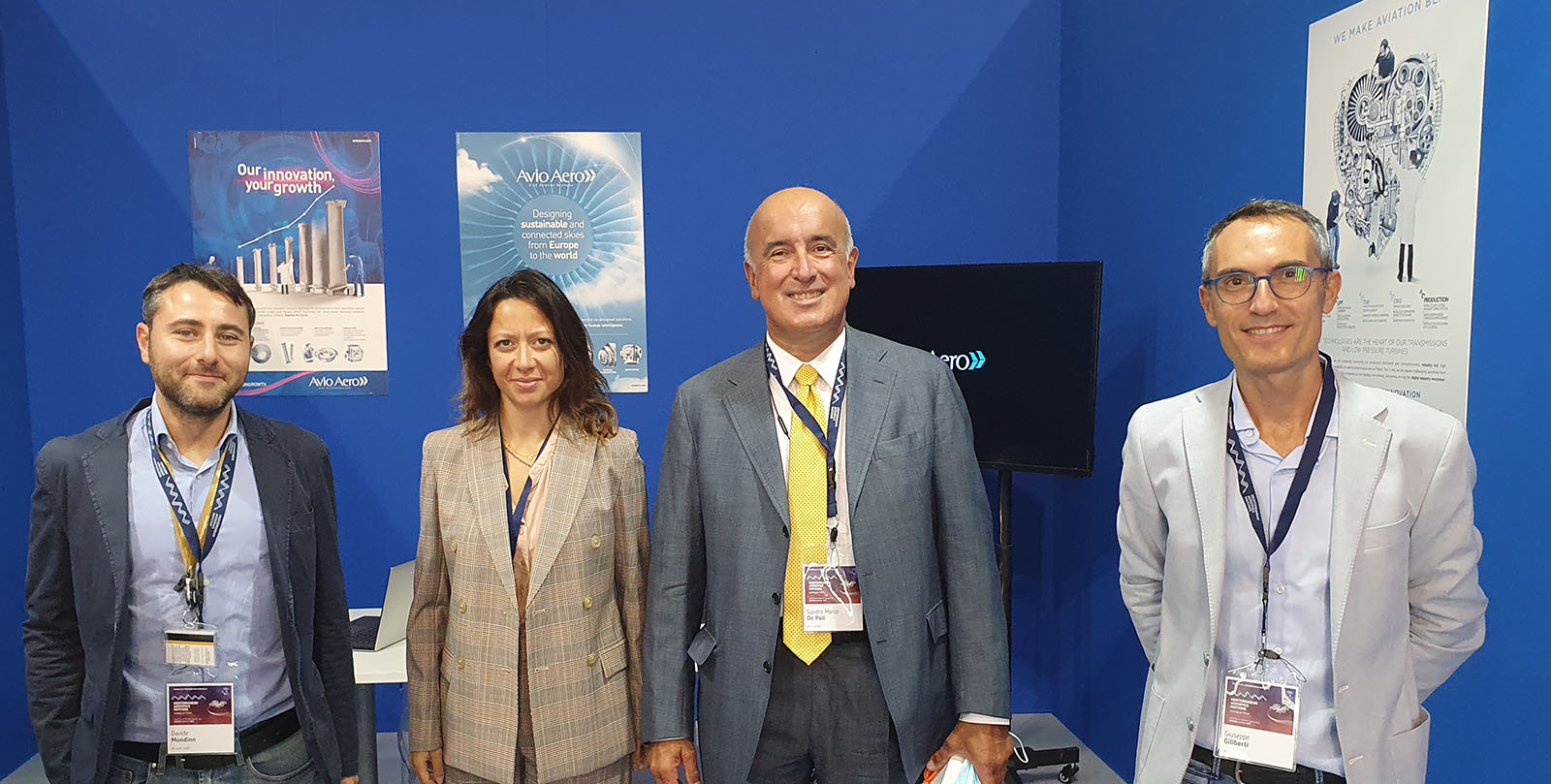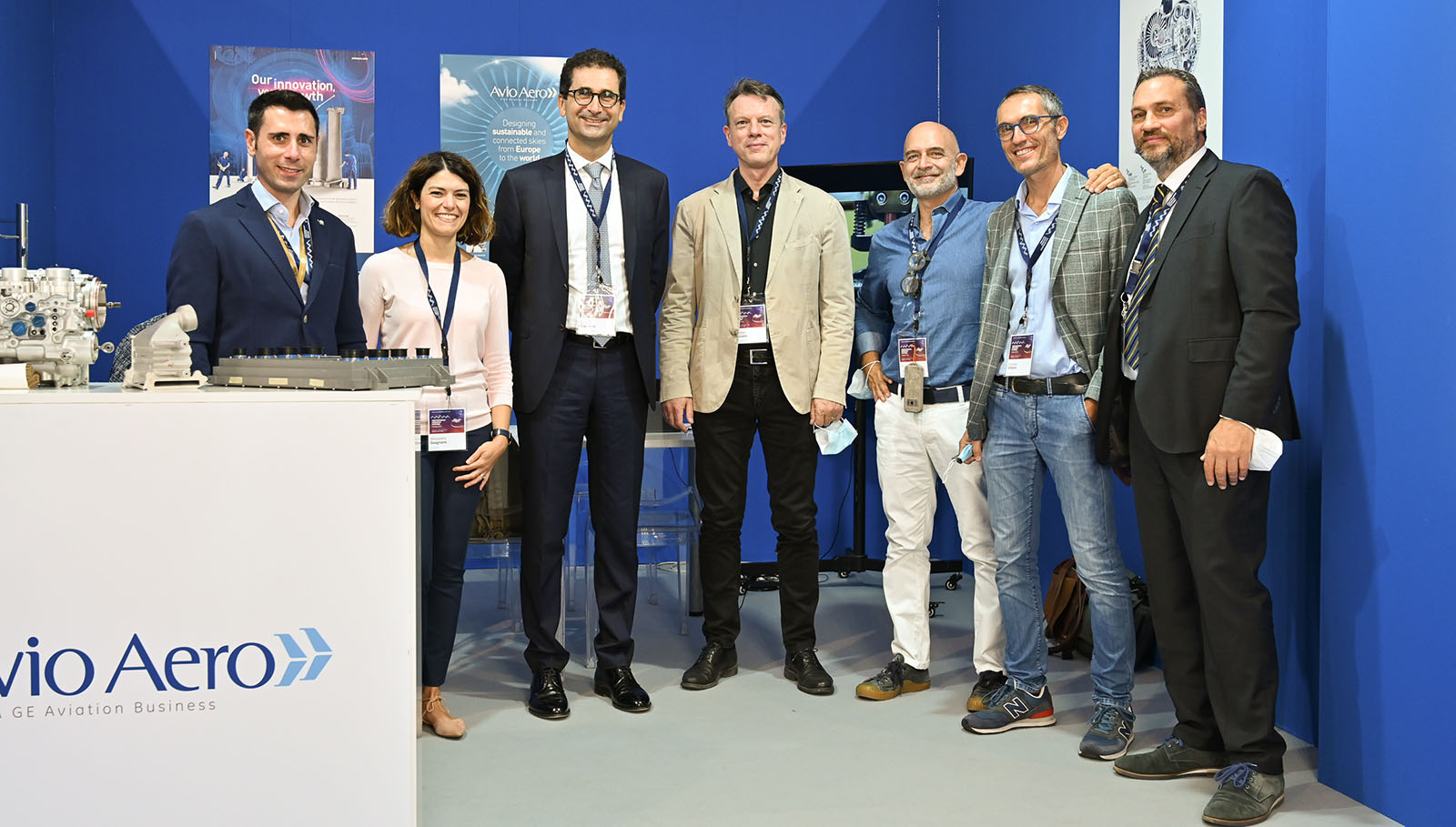Future
Aerospace in the middle of Mediterranean sea
The Mediterranean Aerospace Matching in Grottaglie was an interesting showcase for our technologies and new projects, directly conveyed by the Avio Aero protagonists from Bari lab.
Oct 2021
The Mediterranean Aerospace Matching took place at the “Marcello Arlotta” airport in Grottaglie on September 22-24. The event was organized by the Aerospace Technology District (DTA) to discuss the production system, governance and research in the aerospace sector, with particular focus on unmanned aircraft, suborbital technologies and infrastructure for the control and management of airspace.
Taking part in the three-day event were institutions and leading Italian and international companies in the sector, involved in Apulia in the development and production of numerous components for civil and military aircraft, as well as helicopters and drones that today ply our skies.
Avio Aero certainly could not miss this important appointment in Apulia - Avio Aero Chairman Sandro De Poli took the floor during the round table organized on the first day of the event, dedicated to Advanced Air Mobility and technological innovations in the field of unmanned aircraft. Attending the round table with him were Boeing Italy Chairman Angela Natale, the European manager of Lockheed Martin and director of Future Vertical Lift International Luigi Piantadosi and Leonardo’s Senior Vice President of Unmanned Systems Laurent Sissman.
"The future of air transport will come from the development of technologies that will make our sector sustainable," declared the speakers at the round table. “The first step will be to create engine architectures with reduced consumption and emissions and that are powered by SAF (Sustainable Aviation Fuel) instead of traditional kerosene," said De Poli, “then, of course, we will look at hybrid-electric motorization. However, while automotive companies have made rapid progress in the field of electrification in road transport, it is more difficult to imagine a full electric system in the short term for the air transport sector.” The effort of the medium to long-term research of the entire sector is also looking at hydrogen propulsion, concluded De Poli, "a field in which Europe can carve out a leading position for itself when it comes to technological research.”
Avio Aero attended the event with its own booth. The experts and researchers who welcomed visitors to the booth came precisely from the Avio Aero R&D centers in Apulia, set up in partnership with Politecnico di Bari. It was an opportunity to tell visitors who we are and the details of our projects, such as the European Technologies Development Clusters(E-TDCs), the innovative model of European collaboration between Avio Aero, R&D centers, universities and SMEs cooperating on common projects of sustainable innovation, which gathers over 32 Italian and European members (including universities in Apulia) and the SiCo and META research projects.
The entire Apulian ecosystem of Avio Aero was discussed during meetings at the booth - from Energy Factory Bari (EFB), dedicated to the research and development of new technologies on control, electrical and fluidic systems for aeronautical propulsion, to the Apulia Repair Development Center For Additive Repair, created to develop aeronautical component repair procedures through additive manufacturing. These two centers of excellence were conceived, sustained and enhanced thanks "to the partnership with the Politecnico di Bari and also thanks to the virtuous model of collaborations set up by Avio Aero with institutions and universities,” explained Giuseppe Giliberti, Senior Systems Engineering. He also highlighted that "it is thanks to these relationships on highly complex programs, aimed at the development of innovative technologies or new products, that they can benefit from skills, adequate human resources, and specific specialized laboratories in what represents great teamwork between Avio Aero, local institutions and universities.”
“Our fruitful collaboration with the Apulia region is based on its strong determination to invest in the aerospace sector," explained Alessandra Guagnano from Avio Aero Controls Engineering. The regional partnership has been highly relevant, for example, in the launch of two innovative projects: SiCo and META. The purpose of the first project was to develop the control module for the Catalyst turboprop engine, the first turboprop engine developed and built in Europe in over 50 years. “It is a project that ended in April 2021 and allowed us to come up with the electronic control unit and related engine control software for all phases of flight operations, plus the fuel injection system, the propeller blade inclination control system, the ignition box and all engine sensors,” said Giliberti. It was also thanks to the SiCo project that it was possible “to create a turboprop engine entirely developed in Europe, leading to the development of electrical and fluidic systems as a collaboration between the Apulian offices of Avio Aero and our colleagues in Rivalta," said Guagnano. It was an important experience that also allowed us to design and build the two complex test benches for engine tests: the Dry Rig in Bari - a real time simulator able to emulate an aircraft engine and its accessories - and the Wet Rigin Brindisi - the test bench on which we test the brain of the engine with its actual components" to verify the behavior of the control system while taking into account both the physical and simulated signals of the engine and the accessories.
The META project, on the other hand, “focused on the design of mechanical power transmissions and accessories," said Giliberti. In this case, the collaboration with the Politecnico di Bari and local companies was important and led to the attainment of the objectives set at the Brindisi plant - design mechanical transmissions with fewer components and reduced weight, while ensuring greater reliability. The next technological challenge of the META project is now the development of additive technologies for repairing engine components or reconfiguring components, which are complex to manufacture using traditional metallurgical production processes. With additive manufacturing, instead, it will be possible to recover worn components and restore them to their original form, thus reducing maintenance time and associated costs.
Avio Aero's presence at Mediterranean Aerospace Matching in Grottaglie was definitely an opportunity to "raise awareness on the research and development activities conducted by Avio Aero since 2016," explained Guagnano, who also witnessed the enthusiasm of the many young university students attending the event, who "asked us many questions on the design and operation of some prototype components of the Catalyst engine we had on display." And of course their curiosity was not only about our products and technologies, "but also about possible opportunities for theses or internships. Ours is a sector that is appealing and fascinating."
Certainly, the model proposed by Avio Aero ”is based on technologies and innovation but, first and foremost, on passionate people who are committed and share a common vision,” concluded Giliberti.






